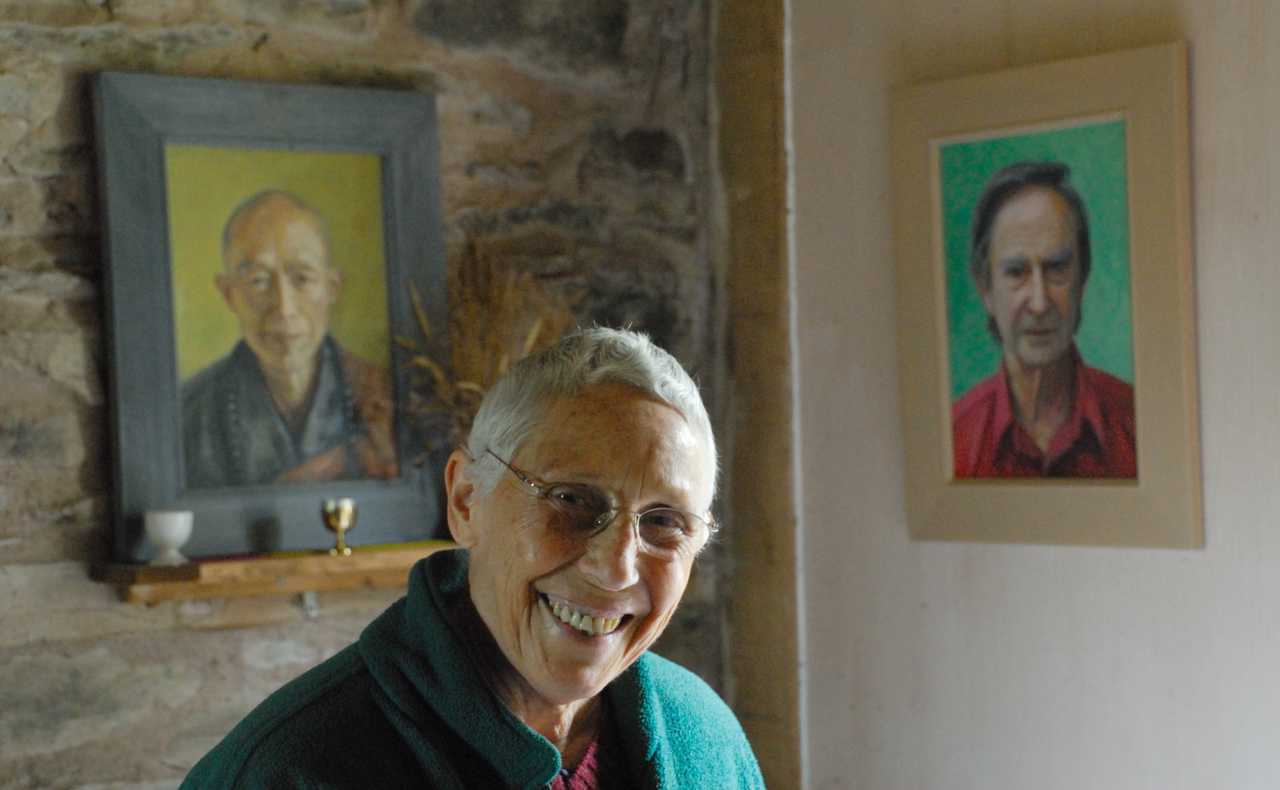A Eucharist on the Ganges

During our recent trip to India we spent one whole day in a rowing boat being taken down river to Banares.
We had an early morning start from a sandy beach clutching our picnic boxes and water bottles to sustain us through the day. Blazing sunshine mellowed and warmed the coolness of the morning as we embarked to the amusement of the village onlookers.
The river Ganga or Ganges is for Indians the mother of all rivers. Her life is full of mystery from oldest times. The significance of this river through the centuries is a symbol of renewal, birth and death, a vehicle to transport souls from "here in the living world to there, in the hope for the release of the spirit from endless rebirth."
Its clear sources originate high in the Himalayas from mount Kailas (representing the spiritual heights) through the vastness of the Gangetic plain (where most ordinary men live). It collects and carries with it aspects of the every ongoing life cycle in the most vivid way amongst all rivers. To be cremated on its banks, especially in Banares, is the most treasured wish of many devout Hindus, unless you died of smallpox, leprosy or a snake bite, are a child under the age of 6 or a pregnant woman. Under these circumstances you do not need the fire to free and purify you but your body is sunk into the middle of the river bed. The water is said to have very special cleansing qualifies not only for the body, but also for the soul.
There are very few boats on this wonderful vast river and it felt special indeed to be in this traditional rowing boat worked by four boatmen for our little group of ten adults and one child. We stopped twice on our trip.
Once on the bank of a small village said to be inhabited mostly by a dangerous tribe and we were not to leave the boat. We waited and watched as one and then an other of the boatmen disappeared to return with what appeared to be special blessings for our boat shown by flower garlands draped on the stern of the boat and a mark of red paint on their forehead. A steadily increasing group of children stared at us and played and we looked curiously at them somewhat shy taking the odd snap shot. Women were doing their washing as usual on the bank, clad in brilliant coloured saris and then fixing in no time a large bamboo stand on the sand, hanging their garments to dry in the breeze and the sun. The intense light, the vivid colours the mystery held all of us in its spell as we moved slowly on down the river.
Next stop was on a large sand bank in the river to relieve our selves and then we were playing like children in the brilliant light on the sands. Coming back to our boat the boat men started making tea for us with Ganges water! It was boiled for a few minutes, had some herbs, milk and sugar in it and was shared out to all. There we sat in our rowing boat on a bench around the edge of it sipping this offering, knowing what the water contained of bodies, effluent and industrial toxins. We also knew about this river's exceptional properties to cleanse itself, to deoxygenate quickly. At that moment, when we put our lips to the little cups I was suddenly reminded of the meaning of a Eucharist in a different context of belief systems spanning over our globe.
Most of us drank it in the spirit of trust, aware of the uniqueness of the moment. I felt aware of "one body of humanity" of which we were each one a minute part on our journey from conception to death and floating on this endless symbol of renewal and drinking of it.
The brilliant sunshine around us reflected in myriads of particles of glistening sand seemed to penetrate everything, the landscape, the water and all of us. When I think about it now, I can still feel the glow of light in my heart. No one became ill as a result of drinking it.
This was just one memorable moment of this wonderful trip of four weeks, full of many amazing memories.
- Publication date:
- Modified date:
- Categories: 1997 Other Articles Iris Tute Others
-
 Western Chan Fellowship CIO
Western Chan Fellowship CIO - Link to this page
©Western Chan Fellowship CIO 1997-2026. May not be quoted for commercial purposes. Anyone wishing to quote for non-commercial purposes may seek permission from the WCF Secretary.
The articles on this website have been submitted by various authors. The views expressed do not necessarily represent the views of the Western Chan Fellowship.
Permalink: https://w-c-f.org/Q372-241
